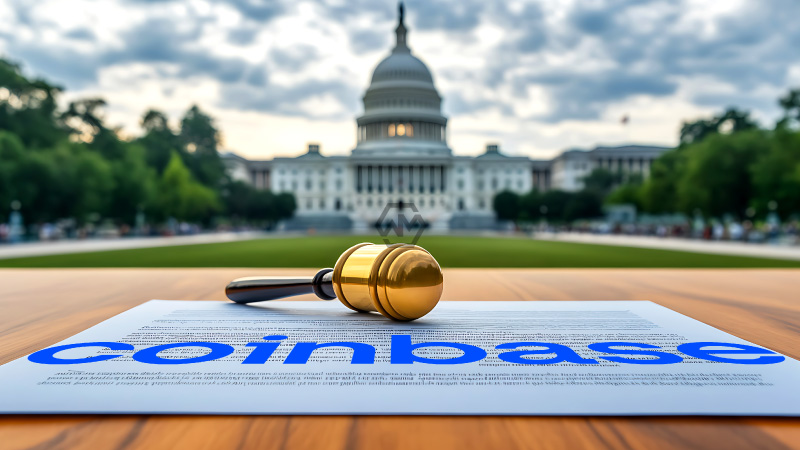- Oregon sues Coinbase for allegedly offering unregistered securities to residents.
- Case echoes SEC’s dismissed 2025 lawsuit but adds state-level consumer focus.
- Internet Computer Protocol (ICP) token cited for its massive price collapse.
Oregon Attorney General Dan Rayfield has filed a significant lawsuit against Coinbase. He claims the cryptocurrency exchange violated state securities laws by facilitating trades of unregistered digital assets.
Coinbase, in response, maintains that digital currencies are commodities and not securities. It rejects the state’s accusations as a recycled version of the SEC‘s previously dismissed claims.
State vs. Exchange: Oregon’s Legal Clash with Coinbase Signals Regulatory Rift
The lawsuit by Oregon marks a rare but growing trend of state governments stepping in. They do this where federal oversight has receded. Following the SEC’s February 2025 dismissal of its own lawsuit against Coinbase, Oregon argues that it was left with no choice. It acted independently to protect its residents. The state’s 171-page legal filing calls for restitution and tighter consumer safeguards.
One of the case’s focal points is the Internet Computer Protocol (ICP). This is a token that saw a catastrophic drop in value shortly after Coinbase added it. Oregon uses this dramatic price collapse as evidence of reckless asset promotion and poor investor protections. The state also alleges Coinbase enabled fraudulent trading environments, similar to pump-and-dump schemes.
Coinbase disputes this by saying it merely provides access to a digital marketplace, not investment advice or securities trading. Paul Grewal, the company’s chief legal officer, argues that the lawsuit reflects outdated thinking. He contends it ignores recent judicial precedents that favor the exchange. Coinbase says the lawsuit is not only misguided but also harmful to innovation.
At its core, this lawsuit represents deeper friction between state and federal interpretations of crypto law. While the SEC had softened its stance under the Trump administration, Oregon’s aggressive move could inspire other states to pursue similar cases. This would escalate the pressure on cryptocurrency platforms to adapt to a fragmented regulatory landscape.
As the legal battle unfolds, Oregon’s action may be the spark that reignites the national debate over crypto oversight. This could challenge the industry to evolve under increasing legal scrutiny.
“We are committed to protecting Oregon investors when federal agencies fail to act.”
— Dan Rayfield, Oregon Attorney General



